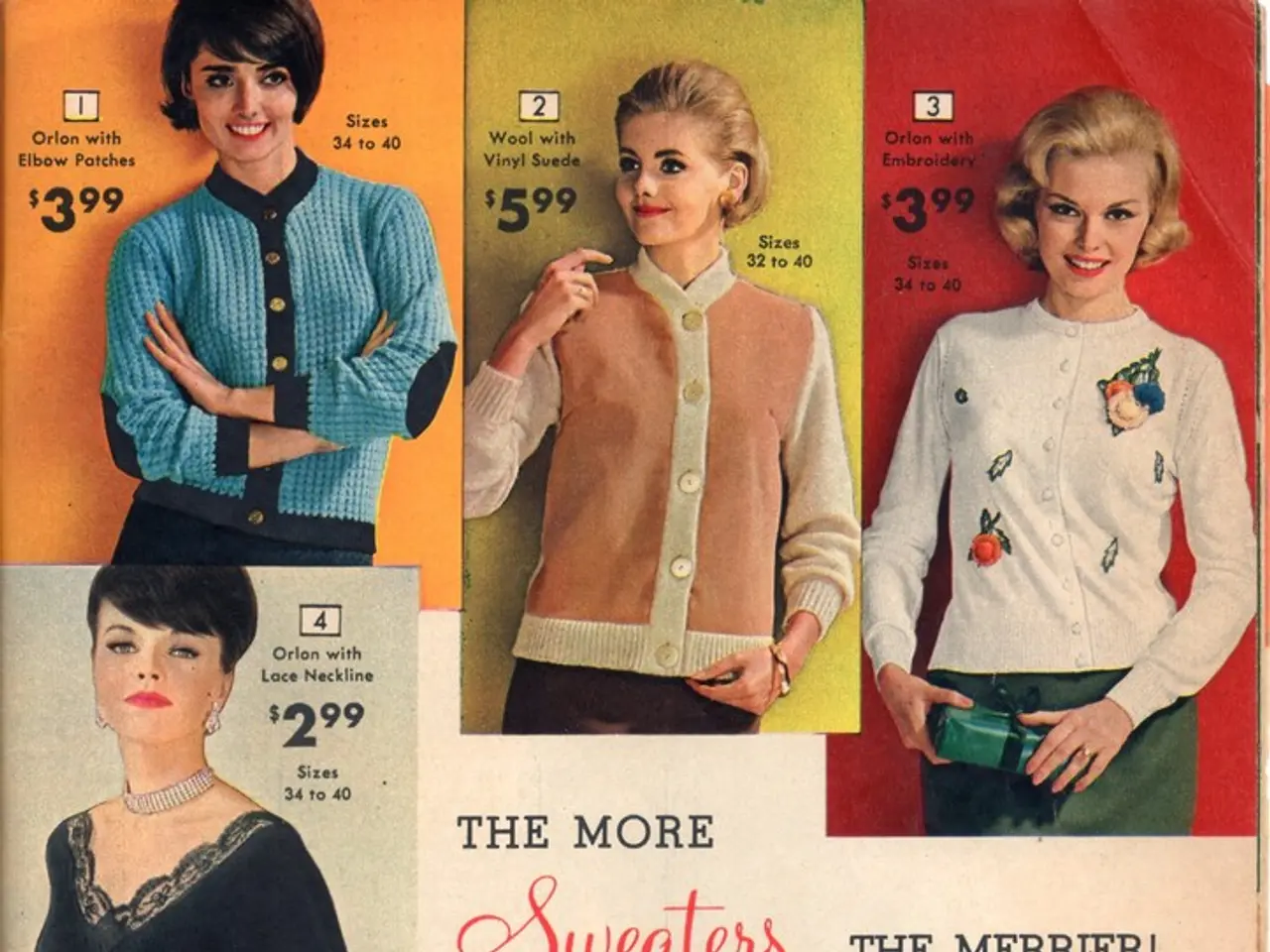Exploring Brooklyn: Yiddish New York - Navigating the Intersection of History, Performances, and Cultural Connections
In a groundbreaking event, the Yiddish New York festival, a flagship event of New York Jewish culture, hosted "Oy, I Like They...A Queer Tribute to Aaron Lebedeff." This concert, held during the Christmas holiday week, showcased a unique blend of Yiddish music, language, and culture, with a focus on queering the work of the prominent Yiddish theatre and music figure, Aaron Lebedeff.
The musical accompaniment in the Queer Tribute version of "Az Men Farzucht" blurred the stable boundaries of identity, with arrangements drawing heavily on the sounds of psychedelic cumbia, as directed by Frank London, a founding member of the Klezmatics. The concert began with a video of a song and dance performance of Lebedeff's 1921 record "Hulie Kabtzen" from the 1996 film adaptation of Nikolai Erdman's play "The Suicide."
Mikhl Yashinsky, a star of "Fidler Afn Dakh," the recent Yiddish language production of "Fiddler on the Roof," performed a rendition of Lebedeff's 1941 record "Az Men Farzucht, Un S'is Gut," with new lyrics that revamped the song with gay themes and specifically Jewish content. The arrangement of "Az Men Farzucht" began with a doina, a non-metered instrumental section characteristic of klezmer performance.
Frank London, the music director for the Queer Tribute to Aaron Lebedeff concert, turned to Susan Sontag's 1964 essay "Notes on 'Camp'" to discuss his choice of a queer frame for the concert. He suggested that Lebedeff's songs subvert the pretentions of high art, offering democratizing, utopian tendencies through the bold dramatic gestures of the vulgar, the extreme, and the sentimental.
The Queer Tribute to Aaron Lebedeff concert demonstrated that Yiddish culture is evolving and inclusive of diverse identities beyond historical heteronormative frameworks. It facilitated conversations about sexuality, gender, and cultural heritage within the Yiddishist community, which traditionally may have limited such expressions. The concert also showcased artistic innovation by blending traditional Yiddish music and language with contemporary queer artistic forms, potentially challenging and expanding the cultural canon.
The significance of such a tribute in the contemporary Yiddishist community would be to highlight the ongoing relevance and adaptability of Yiddish culture, underscoring how it can serve as a site for intersectional identity exploration and affirmation.
This year's festival was slated to return to in-person concerts and group events, but was forced online due to the COVID-19 Omicron variant surge in New York City. Despite the challenges, the festival continues to thrive, offering classes in Yiddish language and klezmer music performance, and lectures on Ashkenazi culture.
[1] TikTok Video 1 [2] TikTok Video 2 [3] TikTok Video 3 [4] TikTok Video 4 [5] TikTok Video 5
- The unique blend of Yiddish culture showcased in the concert can be a fascinating topic for discussion on social media platforms like TikTok.
- The Queer Tribute to Aaron Lebedeff concert seamlessly merges fashion-and-beauty, with the artists' unique style adding an extra layer to the performance.
- For those interested in personal-growth, understanding how cultural traditions evolve to include diverse identities can be a valuable learning experience.
- The concert's focus on queering the work of Aaron Lebedeff is a testament to the importance of education-and-self-development, fostering a more inclusive understanding of cultural heritage.
- Books such as Susan Sontag's "Notes on 'Camp'" can provide insights into the music director's choice of a queer frame for the concert.
- The board of the Yiddish New York festival might find it beneficial to research pop-culture trends to attract a wider audience to their events.
- The concert's demonstration of artistic innovation in blending traditional Yiddish music with contemporary queer artistic forms can inspire skills-training in both fields.
- Sports fans can find parallels between the bold dramatic gestures in Aaron Lebedeff's songs and the intense passion of football, NFL, WNBA, basketball, MLB, hockey, golf, and other sports.
- The Queer Tribute to Aaron Lebedeff concert could spark conversations among fans about the intersection of sports and sexuality, just as the Masters, Grand Prix, horse-racing, NCAAs, and auto-racing have diverse fanbases.
- Mixed-martial-arts enthusiasts might appreciate the courage and strength depicted in Lebedeff's songs, reflecting the spirit of determination seen in sports analysis and the MMA ring.
- Leslie Feinberg's "Stone Butch Blues" or Alexandra Chasin's "Slesh: Jewish Attitudes Toward Sexuality" could serve as companion reading for those wanting a deeper understanding of the queer tribute's context.
- Job-search sites such as LinkedIn could benefit from featuring articles on the cultural significance of events like the Queer Tribute to Aaron Lebedeff, shining a light on career-development opportunities in the fashion-and-beauty, education-and-self-development, and entertainment industries.
- In the realm of social-media, the Queer Tribute to Aaron Lebedeff concert could inspire a hashtag trend, allowing users to share their thoughts and experiences.
- Celebrities such as Lady Gaga, who has shown support for the LGBTQ+ community, might find the Queer Tribute to Aaron Lebedeff concert an interesting topic for discussion or potential collaboration.
- The concert's focus on queering Yiddish music could lead to a resurgence in music streaming platforms like Spotify, Apple Music, and YouTube, with an increase in listeners seeking out contemporary queer artistic forms and traditional Yiddish music.
- Fans of sci-fi-and-fantasy might appreciate the utopian tendencies in Aaron Lebedeff's songs, drawing parallels with the genre's exploration of alternative worlds and identities.
- The Queer Tribute to Aaron Lebedeff concert's challenge to the cultural canon could spur debates in academia, particularly in sociology, psychology, and queer studies departments.
- Sports-betting enthusiasts might find the concert's focus on LGBTQ+ themes and intersectional identity exploration an intriguing topic, potentially leading to new betting markets for fans of Yiddish culture and queer artistic forms.




